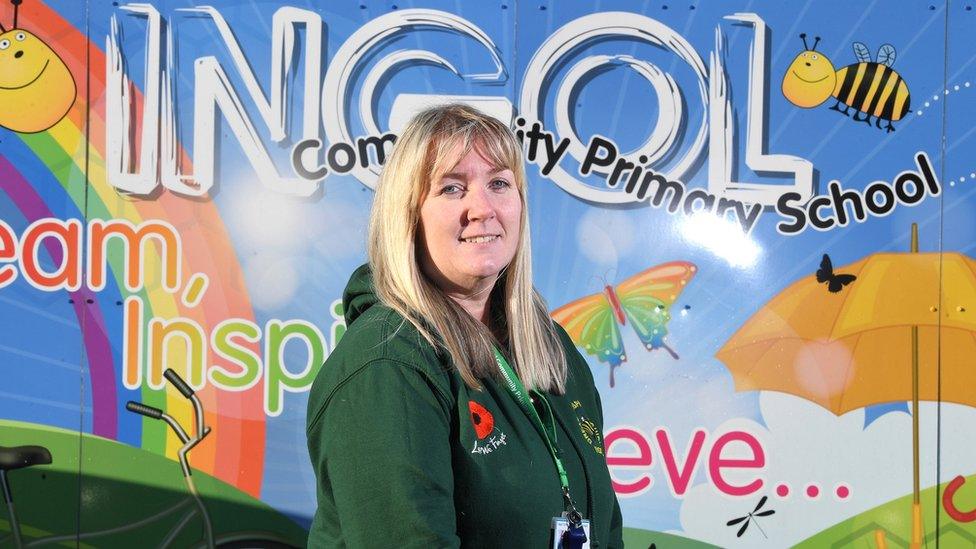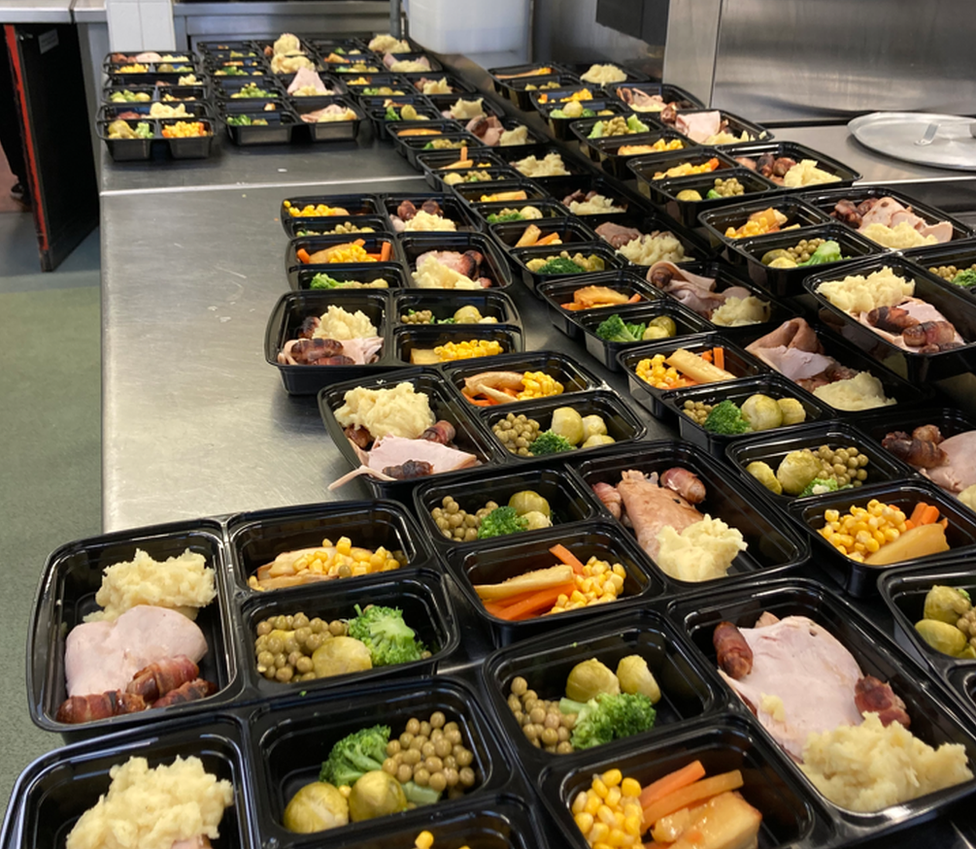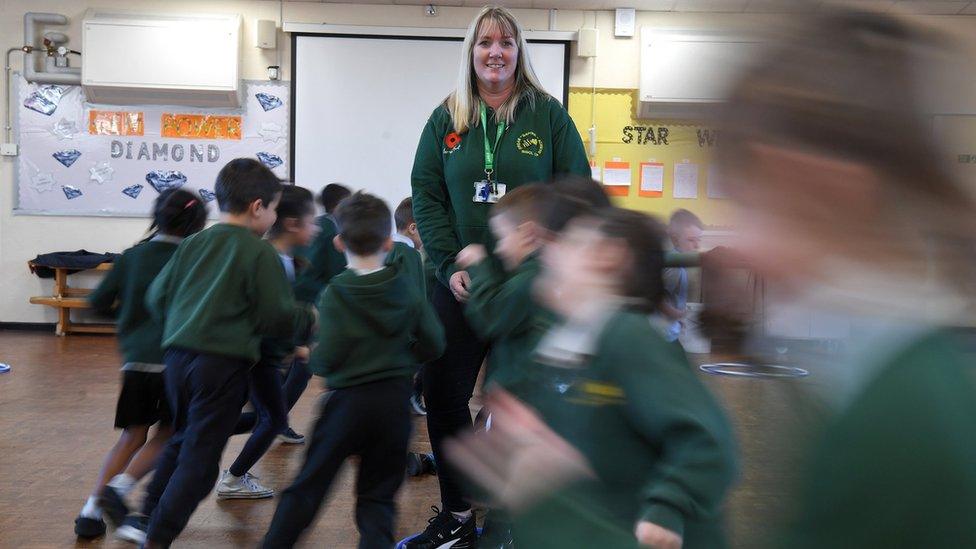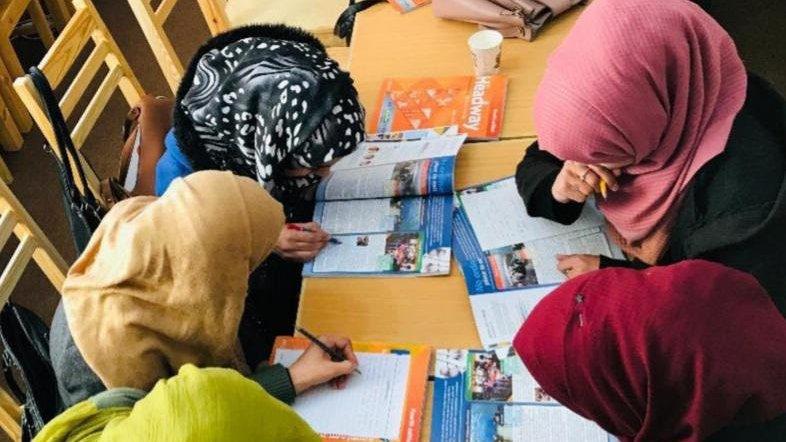Cost of living: The Preston school going above and beyond
- Published

Naomi Parkinson said she never imagined having to intervene in the lives of children this much
Ingol Community Primary School, on Whitby Avenue in Preston, Lancashire, is in one of the most deprived areas in England. More than 60% of the children are on pupil premium - state funding aimed at closing the attainment gap between poorer pupils and their peers. But that's not their only challenge.
BBC Radio 4's File on 4 programme spent months recording at Ingol Primary and found a school going to exceptional lengths to make sure families survive the cost-of-living crisis.
"Children can come [to school] feeling quite worried because there's only a pound left on the meter when they've left the house," head teacher Naomi Parkinson told the BBC.
"They'll tell us there's nothing in the fridge, that I haven't got anything for my tea, we've no washing machine, etc. They're very honest, because they know we'll help."
Ingol is about four miles (6.4km) north-east of Preston city centre. Rows of terraced houses and flats lead towards a library, community centre and a social club. It's tidy and well-kept - an area people take pride in - but behind all that, there's real hardship.
'More than a school'
Every child receives a slice of toast when they come through the gates. Dirty or torn uniforms are discreetly washed or mended before being returned to the child at the end of the day. Families are allowed to bring in washing from home if their machine is broken or they can't afford to turn it on.
Last Christmas, Ms Parkinson was so concerned families would not be able to afford to turn the oven on long enough to make Christmas dinner, she cooked it for them, to be frozen at home and reheated in the microwave on the day.
She would do anything to save their energy bills.
But despite this, she knows some things are out of her control.

Christmas dinners were made by the school for families to heat up on the day
"Everyone's human right is to be able to have a warm bed to sleep in at night or somewhere safe to live and that is paramount to us at the moment," Ms Parkinson said.
"One of my biggest fears is a family start to use candles instead of lights and then [cause] fires. It's quite scary."
Mum-of-two, Emma Deans, said the school helps her and other families "more than a school really should".
"[The school] has often given milk and bread to myself and other families. If I can't afford it and I don't have any other way of getting it, then I go to school."
Emma, who also works part-time as a cleaner at the school, said the staff have created an atmosphere in which families were not afraid to ask for help.
"I know if I was really struggling and I needed to wash my son's uniform, I could take it into school quite easily," she said.
"You wouldn't feel cheeky or uncomfortable asking them to the wash the uniform. They would just happily do it for you.
"We would be lost without the school. Absolutely lost."

Head teacher Naomi Parkinson said the extra help the school provides makes a huge difference to pupils
While Ms Parkinson never imagined having to intervene in the lives of children this much, she says what they are doing is working.
Many of the pupils arrive at the school behind for their age but leave at or above national average, putting the school in the top 20% in the country for progress.
But with increasing pressure on the school's finances the challenge they face is bigger than ever.
Ms Parkinson added: "We've created this place where we know our children and our community is going to be so much more empowered.
"Just because they live here, that doesn't stop you from going to university or going to a vocational course - these children are the future.
"We want to continue making sure that we can do the absolute utmost for every single child that walks through that door."

File on 4 - Learning to survive: The School Fighting the Cost of Living Crisis was broadcast on BBC Radio 4 on Tuesday 24 January at 20:00 GMT and is available on BBC Sounds.
Related topics
- Published18 January 2023

- Published11 January 2023
